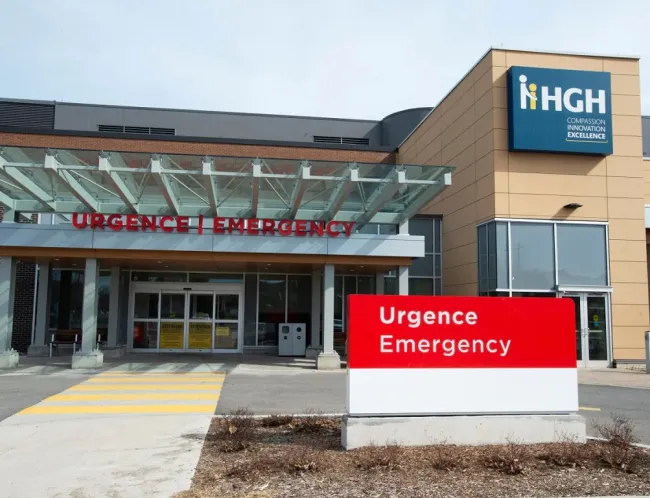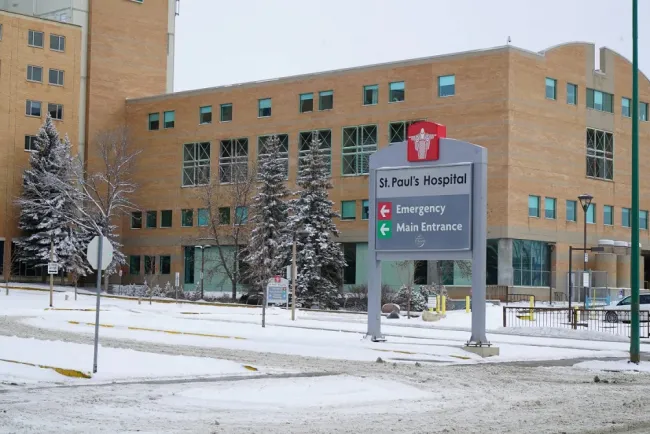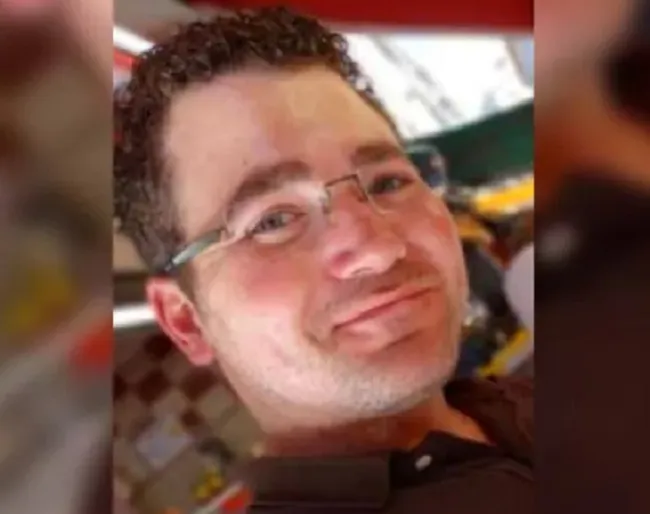Dr. Brian Nadler murder charge in the death Albert Poidinger reddit
Brian Nadler spoke before the Nevada medical board about his experiences at a Saskatoon hospital.
A physician from Ontario is expected to appear in court Tuesday on a charge of first-degree murder.
The doctor charged with first-degree murder in connection with the death of an Ontario hospital patient — and who previously told a United States medical board how problems with workers at a Saskatchewan hospital had him "in tears" — is set to appear in court Tuesday afternoon.
Dr. Brian Nadler, a physician at the Hawkesbury and District General Hospital, has been charged with first-degree murder in connection with the death of 89-year-old Albert Poidinger, a patient at the hospital. The College of Physicians and Surgeons of Ontario revoked his medical license days after he was charged on March 26.
According to CBC News, police are now re-examining the deaths of at least five COVID-19 patients who died between March 17 and 25 at the hospital.
Nadler is scheduled to appear in court early Tuesday afternoon in L'Orignal, Ont., in eastern Ontario — most likely by video conference.
Alan Brass, the 35-year-old doctor's Ottawa lawyer, previously told CBC News that he maintains his innocence and would vigorously defend himself against the allegations.

Nadler recounts a rough time in Saskatoon.
The majority of what is known about Nadler comes from public records: he lives in a suburb of Montreal, graduated from McGill University in 2010, and then pursued additional studies, fellowships, and clinical practices in Alberta, Saskatchewan, and the United States state of Nevada until obtaining his license to practice medicine in Ontario early last year.
According to the College of Physicians and Surgeons of Saskatchewan, he was charged with two counts of professional misconduct during his tenure at St. Paul's Hospital in Saskatoon — one for referring to a female colleague as a "bitch" after a confrontation and telling another colleague he "felt like slapping" the colleague, and another for inappropriate patient record-keeping.
In his September 2018 appearance before the Nevada State Board of Medical Examiners, Nadler detailed the events that led to the allegations and painted an image of a turbulent six weeks at the Saskatoon hospital, where he said he was emotionally assaulted by several staff members.
St. Paul's Hospital has not yet responded to CBC News' request for comment on Nadler's claims.
Nadler informed the board of a 'hostile work climate.'
Nadler completed a year-long geriatric fellowship at the University of Nevada, which included caring for patients in environments such as hospitals, clinics, and long-term care homes.
While the state's board of medical examiners accepts the vast majority of applications to practice medicine in Nevada without meeting with applicants, it desired to meet with Nadler in person in light of his disciplinary actions in Saskatchewan.
On Sept. 7, 2018, the board provided CBC News with an audio recording of Nadler's 21-minute appearance before the medical examiners. Nadler surrendered his right to a private hearing, and therefore the recording is public.
Nadler testified that he encountered no difficulties during his eight years at McGill's medical school in Montreal and his residency at the University of Alberta in Edmonton.
However, shortly after starting a four-year resident training program at the University of Saskatchewan in July 2014, he encountered tension with several members of staff at the Saskatoon hospital where he worked.

"Within about two weeks, I had a negative encounter with one of my [attending supervisors], who misinterpreted a discussion we had as me challenging his medical judgment in a case involving an elderly uroseptic patient on a very narrow antibiotic," Nadler explained to the board.
He said that he was "assigned to contact the microbiologist" and that another physician instructed him via text message to update the patient's chart to include "broader antibiotics."
However, Nadler stated that the original staff physician was not informed of this plan and believed Nadler made the move himself.
The doctor "essentially exploded at me," he said.
Nadler informed the board that the hospital quickly became a "very hostile work environment."
"It was an incredibly degrading appraisal of my personality, arrogance, and so forth," he explained. "And then there were the many rumors that circulated inside this small community hospital. And it became very clear by the following week that a large number of the workers, [despite the fact that] we had never met, had a very negative opinion of me. That was the start."
And, according to Nadler, the situation has gotten worse.
He said that he was "attempting to stay ahead of the situation, to work on any perceived shortcomings or to improve their perception of me."
And, although some staff members expressed satisfaction with his work, the original physician declined to work with him, Nadler informed the board.
Nadler claimed that he was then moved to another boss who "possibly not on purpose" was "highly rude and critical" and was "kind of undermining and publicly shaming" him.
"And it got to the point that I was in tears and emailed my program for assistance," he said.
The situation came to a head one night in 2014, when Nadler had a "misunderstanding" with another physician regarding a patient's treatment change.
"From the moment she learned I was interested in the case, she ultimately lost influence," Nadler testified to the board. "[She] screamed at me publicly in the emergency room and did not give me a chance to clarify anything."
He was later suspended by the doctor after he complained to his program directors about her being "highly verbally aggressive," Nadler said.
At listening, alludes to medical concerns.
Nadler testified before the board that he "absolutely confessed" to the two allegations of unprofessional behavior against him, took professional ethics and record-keeping classes, and wrote an apology letter to the doctor.
Saskatchewan's medical college chose not to seek further accreditation.
Nadler also reported twice to the Nevada board that he had unspecified "medical problems" during his tenure there, issues "that limited my ability to give it my all."
The board made no attempt to elicit additional information from him.
Near the conclusion of Nadler's arrival, one board member said of the Canadian physician's previous troubles, "'At this stage, you're in the'move on process.'"
"I really hope so," Nadler responded.
Nadler was unanimously given a license to practice medicine by the Nevada commission.
